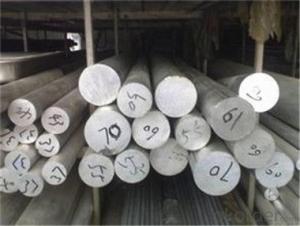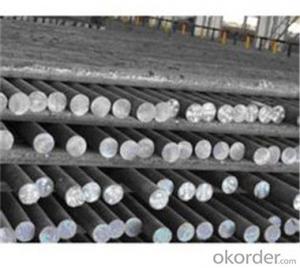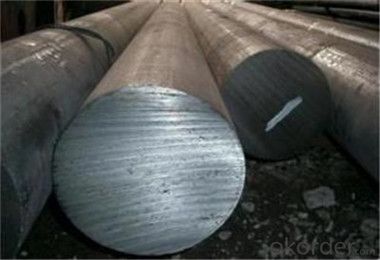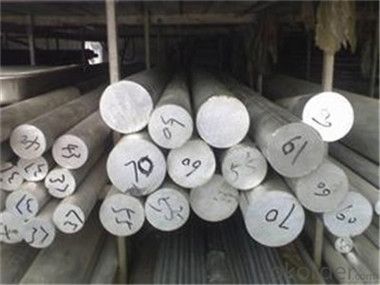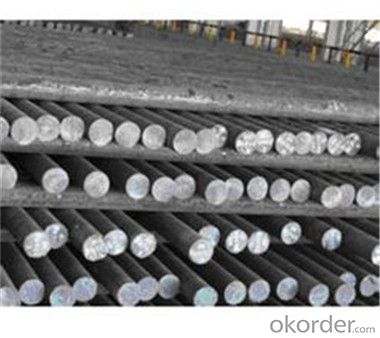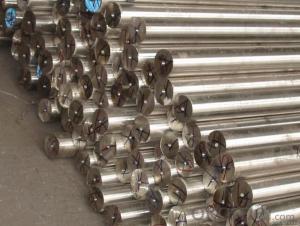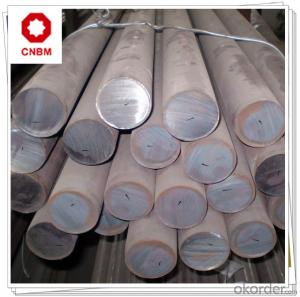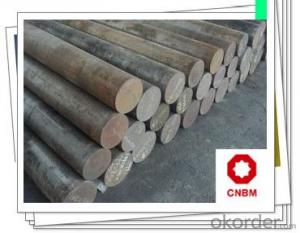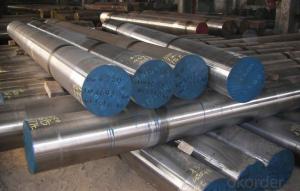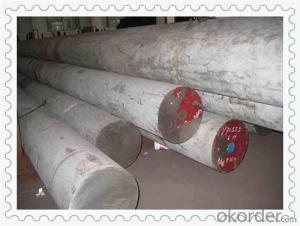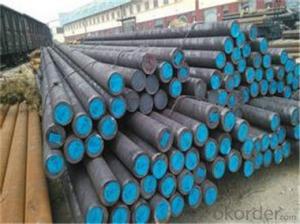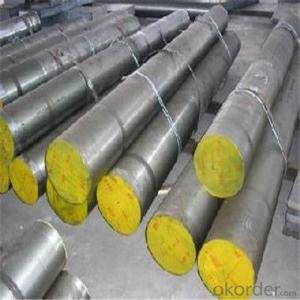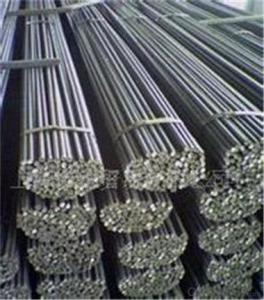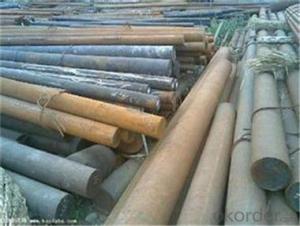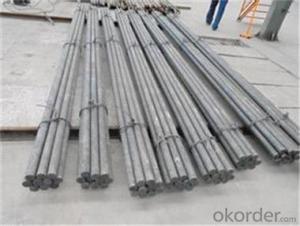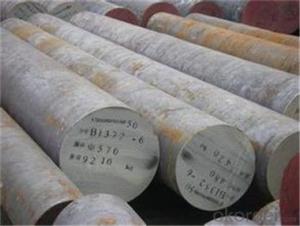HSS Steel Round Bar/High Alloy Round Tool Steel Bar
- Loading Port:
- Tianjin
- Payment Terms:
- TT OR LC
- Min Order Qty:
- 88 m.t.
- Supply Capability:
- 2000000 m.t./month
OKorder Service Pledge
OKorder Financial Service
You Might Also Like
Specification
Description of steel round bar:
Diameter:20mm-80(85)mm(rolled round steel),90-350(400)mm(forged round steel)
Length: optional
Quality High Carbon Steel Round Bar
Garde:20CrMo30 CrMo 35CrMo 42CrMo
Dia:18-230mm
Standard GB,JIS,ASTM,DIN,AISI,BS
Festures of steel round bar:
Cr shaper cutter, milling cutter,screw tap,drill bit etc.Also can be used in manufacture of large scale and thermoplasticity shaped cutting tools and antiabrasive cutting tools under high load
Specifications of steel round bar:
1.Forged round bars: (Diameter) 14mm ~ 500mm ,Length:2000mm-6000mm
2.Forged plates: (Thickness)15~400mm x (Width)50~1500mm ,Length:2000mm-6000mm
3.Square bars: As customers’ requirements.Forged section: round ,square, flats/blocks
Plate,Other grades and profiles on request.Condition finished goods hot forged/hot rolled + annealed/normalized + tempered/quenched + tempered/any conditions based on your requirements.
Images of steel round bar:
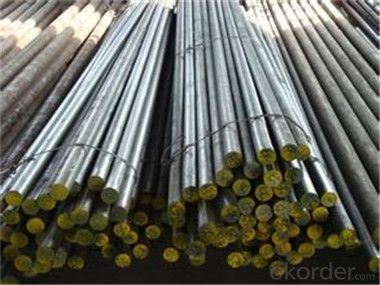
FAQ:
1. What is your package?
Packing situation: standard seaworthy packing or as customer required.
2. How long is the lead time?
Delivery time: 45 days after order confirmed.
3. What payment term do you accept?
Payment: T/T or L/C at sight.
- Q: Can steel round bars be used in the production of construction materials?
- Indeed, the utilization of steel round bars is feasible in the manufacturing of construction materials. Owing to their remarkable robustness and endurance, steel round bars find frequent application within the construction sector. These bars are instrumental in fortifying concrete structures, exemplified by the reinforcement of beams, columns, and slabs, thereby enhancing their resilience and steadfastness. Furthermore, in the construction of buildings and bridges, steel round bars can be employed in the creation of steel frames, trusses, and various structural constituents. The widespread popularity of these bars stems from their adaptability and capacity to endure substantial burdens in the construction industry.
- Q: Is yuan steel round steel?
- Yes.Round steel is a solid strip of steel whose cross section is round. Its specifications are expressed in diameter, in units of millimeters (mm), such as "50mm", which means a diameter of 50 millimeters of round steel.
- Q: What are the quality control measures for steel round bars?
- The quality control measures for steel round bars typically include visual inspection, dimensional checks, chemical composition analysis, mechanical testing, and surface finish evaluation. These measures help ensure that the round bars meet the required specifications and standards, guaranteeing their strength, durability, and overall quality.
- Q: Can steel round bars be used for making stabilizer bars?
- Stabilizer bars can indeed be made using steel round bars. The automotive industry commonly employs steel due to its exceptional durability, high strength, and resistance to deformation. Stabilizer bars, also referred to as sway bars, are crucial components in a vehicle's suspension system. Their purpose is to enhance stability while cornering and minimize body roll. These bars endure substantial forces and must possess the ability to withstand heavy loads. Steel round bars offer the essential strength and rigidity necessary for stabilizer bars to effectively fulfill their function. Moreover, steel is easily accessible and cost-effective, which contributes to its popularity as a preferred material for manufacturing stabilizer bars in the automotive industry.
- Q: Can steel round bars be used for making transmission components?
- Steel round bars are a suitable choice for the fabrication of transmission components. Steel is extensively utilized in the manufacturing sector due to its exceptional strength, durability, and resistance to deterioration. In the production of transmission components like gears, shafts, and couplings, it is customary to employ round bars made of steel. These steel round bars are typically shaped through machining or forging and subsequently subjected to heat treatment to enhance their mechanical attributes. By utilizing steel round bars, the transmission components become capable of enduring substantial loads, facilitating seamless power transmission, and exhibiting an extended lifespan.
- Q: Can steel round bars be used in the manufacturing of bearings?
- No, steel round bars are not typically used in the manufacturing of bearings. Bearings require materials that have specific characteristics such as high strength, hardness, and wear resistance. Steel round bars may not possess these properties in the required magnitude. Instead, bearings are typically made from high-quality steel alloys specifically designed for bearing applications, such as bearing steel or stainless steel. These materials undergo specialized heat treatment processes to achieve the desired properties necessary for bearing manufacturing, including high load-carrying capacity, low friction, and long-lasting durability.
- Q: What are the advantages of using cobalt-alloy steel round bars?
- Using cobalt-alloy steel round bars in various industries and applications offers several advantages. Firstly, this type of steel is exceptionally strong and hard, providing resistance against wear, corrosion, and high temperatures. This makes it suitable for demanding environments where other materials would quickly degrade. Secondly, cobalt-alloy steel maintains its shape and size even under extreme conditions, demonstrating excellent dimensional stability. This makes it ideal for applications that require precise tolerances and minimal deformation, such as in the aerospace and automotive industries. Moreover, cobalt-alloy steel retains its mechanical properties at elevated temperatures, showcasing excellent heat resistance. This makes it valuable in applications involving high-speed machining, cutting tools, and turbine components. Additionally, cobalt-alloy steel round bars are easily machined and fabricated, offering versatility and customization in various applications. Their high machinability and weldability make them suitable for use in manufacturing processes like forging, casting, and machining. Furthermore, cobalt-alloy steel round bars exhibit excellent fatigue resistance, ensuring long-lasting performance and durability. This makes them suitable for applications involving repetitive stress or cyclic loading, such as shafts, springs, and fasteners. Lastly, cobalt-alloy steel is biocompatible, making it suitable for medical and dental applications. Its corrosion resistance and biocompatibility properties make it commonly used in orthopedic implants, surgical tools, and dental instruments. In conclusion, the advantages of using cobalt-alloy steel round bars include exceptional strength, hardness, and dimensional stability, as well as heat resistance, machinability, fatigue resistance, and biocompatibility. These qualities make them valuable across a wide range of industries and applications, offering reliability, durability, and performance.
- Q: What are the advantages of using free-cutting steel round bars?
- There are several advantages to using free-cutting steel round bars. Firstly, they offer improved machinability, which means they can be easily and efficiently machined into various shapes and sizes without excessive tool wear or power consumption. This leads to increased productivity and reduced manufacturing costs. Additionally, free-cutting steel round bars have excellent chip formation properties, resulting in better surface finish and dimensional accuracy of the machined parts. They also exhibit enhanced surface hardness and wear resistance, making them suitable for applications that require durability and strength. Lastly, these bars are readily available and cost-effective, making them a preferred choice for many industries.
- Q: Are steel round bars suitable for outdoor applications?
- Indeed, outdoor applications find steel round bars to be highly suitable. The remarkable durability and strength of steel have established it as a preferred option for numerous outdoor structures and applications. Construction, fencing, gates, outdoor furniture, and other outdoor structures frequently rely on steel round bars owing to their ability to withstand corrosion and weathering. Moreover, the resistance of steel round bars against outdoor elements can be further fortified through painting or coating.
- Q: How do you prevent steel round bars from rusting during transportation?
- There are several effective measures that can be taken to prevent rusting of steel round bars during transportation. Firstly, it is crucial to properly package the steel round bars. This involves securely wrapping and sealing them using moisture-resistant materials like plastic or shrink wrap. This packaging will act as a barrier against moisture and prevent direct contact with air. Secondly, the inclusion of desiccants inside the packaging can help absorb any moisture that may be present. Desiccants such as silica gel packets or moisture-absorbing clay will create a dry environment around the steel bars, reducing the chances of rust formation. Another effective method is to use VCI (Volatile Corrosion Inhibitor) packaging. VCI materials release a protective vapor that forms a thin layer on the steel surface, inhibiting corrosion. VCI films or papers can be utilized to wrap the steel round bars, providing long-lasting rust protection. Proper storage conditions are also crucial during transportation. The steel round bars should be stored in a dry and well-ventilated environment, away from rain, humidity, and extreme temperature fluctuations. If possible, they should be stored in a covered and climate-controlled area to minimize the risk of rust formation. Regular inspection and maintenance of the steel round bars during transportation is essential. This ensures that the packaging remains intact and no moisture has seeped in. If any damage or signs of moisture are detected, immediate action should be taken to rectify the issue and prevent rust from spreading. By implementing these preventive measures, the risk of rust formation on steel round bars during transportation can be significantly reduced, guaranteeing that they arrive at their destination in optimal condition.
Send your message to us
HSS Steel Round Bar/High Alloy Round Tool Steel Bar
- Loading Port:
- Tianjin
- Payment Terms:
- TT OR LC
- Min Order Qty:
- 88 m.t.
- Supply Capability:
- 2000000 m.t./month
OKorder Service Pledge
OKorder Financial Service
Similar products
Hot products
Hot Searches
Related keywords

